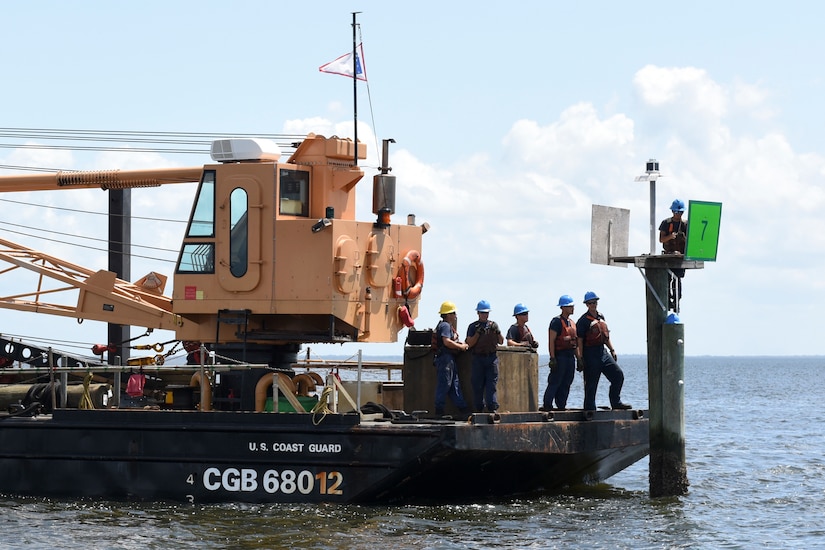By Walter Ham, U.S. Coast Guard Headquarters
INCHEON, South Korea -- As the 2018 hurricane season opens,
the international maritime community recognized the Coast Guard for its efforts
last year to restore safe marine navigation in waterways hit by hurricanes
Harvey, Irma and Maria.
The members of the International Association of Marine Aids
to Navigation and Lighthouse Authorities selected the Coast Guard for its best
practices award during its quadrennial conference, held here May 27-June 2.
A leader in the employment of electronic aids to navigation,
the Coast Guard maintains more than a quarter of the eATON in use around the
world today.
Using the Nationwide Automatic Identification System network
of shore-based towers, the service employs eATON to augment its constellation
of physical aids to navigation for mariners who can “see” eATON with an AIS
receiver and electronic charting system or integrated radar.
Besides hurricane preparation and response, eATON has also
been successfully used to respond to high-water events in the West and to
supplement buoys in ice-covered waterways.
Hurricane Response
Following Hurricane Harvey, the Coast Guard established 13
eATON around Port Aransas, Texas. By temporarily using eATON to mark the buoys
and beacons that were destroyed or damaged by the hurricane, the Coast Guard
was able to reopen the port more quickly.
Leveraging the lessons learned from Hurricane Harvey to
prepare for Hurricane Irma, the Coast Guard proactively established 301 eATON
locations around U.S. waterways that were predicted to lie in the storm’s
track. The eATON marked waterways from Tampa, Florida, to Key West, Florida,
and up the eastern seaboard to Charleston, South Carolina, as well as around
Puerto Rico.
Following the hurricanes, eATON provided a constant aid to
navigation for mariners, including the buoy tenders and ATON teams that reconstituted
the damaged physical ATON system.
International Recognition
Based in Saint Germain-en-Laye, France, IALA is no-profit,
international technical association that brings together Aids to Navigation
authorities from 80 nations, as well as numerous industrial members who provide
ATON services or technical advice.
During the IALA Conference’s general assembly, the United
States was re-elected to the IALA Council, which is IALA’s governing body and
responsible for approval of all IALA guidelines and recommendations.
“It is an honor and privilege to be a part of the leadership
team that will lead IALA into the future,” said Coast Guard Capt. Mary Ellen
Durley, chief of the Office of Navigation Systems and the designated U.S. councilor
to IALA. “The maritime industry is going through a stage of rapid technological
advances, and I look forward to IALA addressing these challenges over the next
four year work plan.”
Coast Guard ATON personnel serve on IALA committees and
contribute to the organization’s aim to ensure that seafarers are provided with
effective and harmonized aids to navigation services worldwide to assist in the
safe navigation of shipping and protection of the environment.
In addition to making presentations and chairing various
panels, members from the U.S. delegation were also appointed to positions on
IALA’s e-Navigation Committee and Aids to Navigation Requirements and
Management Committee.
“I was very impressed with the openness of all delegations
working together to share their technical knowledge and collectively advance
safety and the future of navigation,” said Coast Guard Capt. Kevin C. Kiefer,
the deputy director of the U.S. Marine Transportation System Directorate, which
oversees the Coast Guard’s navigation systems, waterways management, bridges
and Arctic policy programs. “The U.S. Coast Guard continues to play a major
role in developing and supporting these international efforts.”









